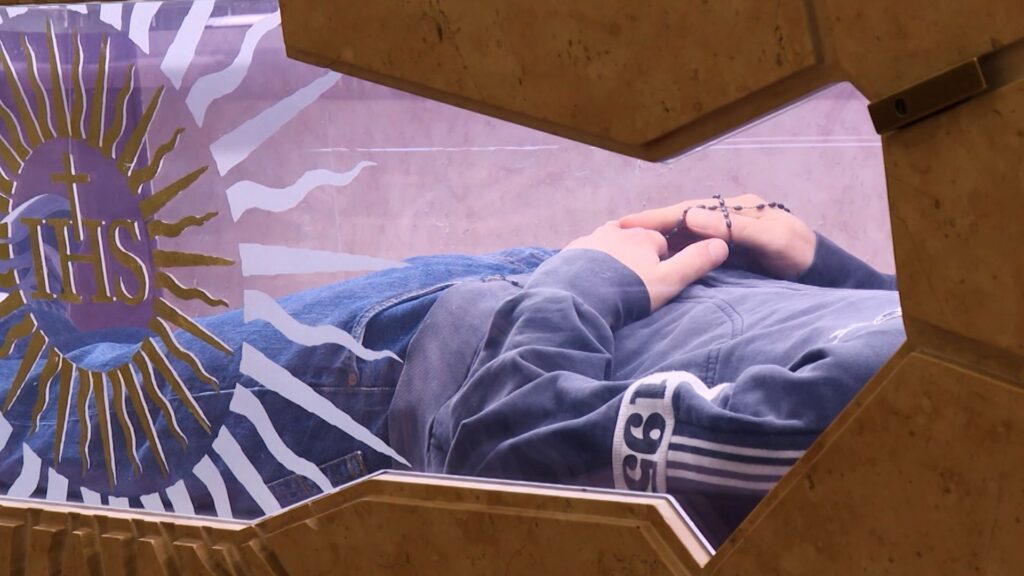
UPDATE: In a historic ceremony, the Catholic Church has just canonized Carlo Acutis, marking him as the first “millennial” saint. The 15-year-old Italian, who died from leukemia in 2006, was celebrated for using his digital skills to promote the Catholic faith, earning the nickname “God’s influencer.”
This momentous event took place on October 15, 2023, presided over by Pope Leo XIV in St. Peter’s Square, where thousands of young people gathered in support. Acutis’ canonization comes at a time when the Catholic Church is actively seeking to engage younger generations amid a crisis of credibility and growing disengagement from mainstream religion.
Carlo Acutis is remembered for his innovative approach to evangelization. He created a website documenting miracles related to the Eucharist, aiming to connect with youth through the digital realm. His mother, Antonia Salzano, expressed that Acutis embodies hope for today’s generation, urging them to use the internet for good. “Carlo is a message of hope,” she said, emphasizing his belief that “all are born original,” encouraging uniqueness in a digital age.
Acutis’ canonization coincided with that of another young figure, Pier Giorgio Frassatti, underscoring the Church’s commitment to acknowledging youthful saints. The significance of this dual canonization was palpable, especially as it represents a shift in the Church’s outreach strategies aimed at revitalizing faith among younger demographics.
Born in London but raised in Milan, Acutis led a seemingly ordinary life, filled with sports and humor. Despite his non-religious background, his faith blossomed early, as he dedicated his pocket money to helping the homeless and supported friends in need. As his mother noted, his strong devotion emerged from a place of compassion and service.
Acutis’ journey to sainthood was remarkably swift. He was beatified in 2020 after a miracle was attributed to his intercession, involving the healing of a Brazilian boy. A second miracle involved a Costa Rican girl recovering from a serious injury. Typically, sainthood requires a lengthy process and the validation of miracles by medical and theological experts, making Acutis’ rapid canonization notable.
At his tomb in Assisi, where he lies dressed in casual attire, Acutis has drawn nearly a million visitors in the past year alone, a figure expected to rise following his canonization. His appeal resonates particularly with young people, who see him as relatable and inspiring.
As discussions surrounding Acutis’ legacy continue, some critics express concerns about how his cause might influence contemporary theology. However, many young followers view him as a bridge between faith and the modern world. “He represents us young people,” said Olivia Santarelli, reflecting a sentiment shared by many who relate to his story and mission.
With Acutis now officially canonized, churches and schools worldwide may soon dedicate themselves to his legacy. This canonization not only celebrates a young life devoted to faith but also signals an urgent call for the Catholic Church to adapt in a rapidly changing world.
As the Church moves forward, the impact of Carlo Acutis’ life and mission will likely continue to inspire discussions about youth engagement in religion, making this a pivotal moment in the modern history of the Catholic faith. The world watches closely as the Church navigates these transformative times, with Acutis leading the charge into a new digital age of spirituality.






